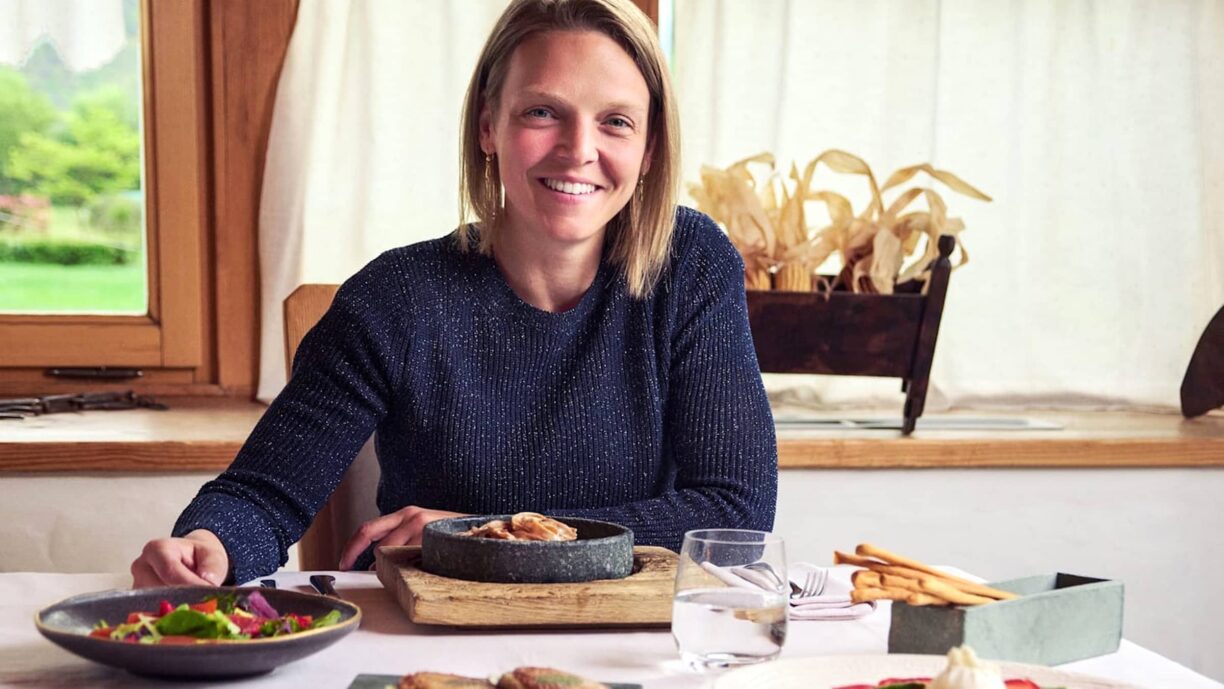London Nutritionist Lily Soutter, who has had Psoriasis from an early age, shares her experience and recommendations with us on how she deals with the skin condition.
Lily’s passion is to simplify the science around nutrition, to provide health hacks and smarter eating strategies to empower people to enjoy a healthy and successful lifestyle.
Her specialities lie in workplace wellness, implementing nutrition-focused wellbeing programmes within corporate organisations across the UK.
Lily is also available at her clinics in Chelsea and Notting Hill.
How did psoriasis affect you on a daily basis Lily?
“My psoriasis appeared at a young age, with plaque psoriasis being the most predominant on my face. I also suffered from guttate psoriasis, which looked a bit like chicken pox covering most of my body.
Unfortunately at such a young age, my peers didn’t always have a great understanding of what this condition was, with many thinking it was contagious. This hugely affected my self-confidence and self-esteem.”
“My condition would worsen during the winter and tended to go into remission in the summer due to the healing effects of sunlight.
When my skin condition was at its worst, I often declined to attend social events and felt like the psoriasis would control my social life. I feel that the impact of skin conditions on mental health is greatly underestimated.”
“Thankfully dietary changes at the age of 14 helped put my psoriasis into remission for several years.
This was until I went to university, and despite embarking on a Human Nutrition degree, as a typical teenager a healthy diet wasn’t my main focus. I wore myself out, and my immune system suffered.”
“From my teens to early twenties I had repeated bouts of tonsillitis, which triggered guttate psoriasis.
Once again I experienced red scaly patches, which looked like chicken pox like all over my face and body. This was when I was at my lowest point, and my self-confidence plummeted.”
“It took me several years to get symptoms under control with diet and lifestyle factors. Whilst you cannot cure psoriasis, certainly diet and lifestyle factors may help to put the condition into remission.”
Did you try any other medications before making lifestyle changes?
“When I was a child, my mother had taken me to numerous health care practitioners. Unfortunately, this was during a time when little was known about the skin condition.
I was given ineffective treatments or those, which only gave a temporary relief. Some of these treatments consisted of coal tar, steroids, emollients, acupuncture and reflexology.”
“I was also put on a long-term course of antibiotics, and given numerous steroid creams but nothing seemed to alleviate the condition long-term.”
“At the age of 14 I was taken to a nutritionist, she explained the role of liver, immune system and stress in relation to skin conditions.
The understanding of this simple scientific explanation gave me the motivation I needed to start making my dietary changes.
What exactly did you cut out of your diet to improve the symptoms?
“Everyone is unique, and what may work for one person may not work for another. Skin conditions can be complex and visiting a nutritionist can help to tailor an appropriate diet to you.”
The key dietary factors that personally helped me:
1) Elimination of excess sugar
“This had the biggest impact on my skin. I would often notice my skin flaring up after over-indulging on bags of Haribo and other sweet treats.”
2) Increased water consumption
“I increased my water consumption from 2-3 glasses a day to around 2 litres a day.
I have kept up with this habit ever since and have seen huge improvements in my skin.”
3) Consumption of oily fish
“Numerous studies have shown the benefits of fish oil consumption and reduction in the redness, thickness and scaling of psoriasis.
The omega 3 fats help lubricate the cells of the body, which helps reduce inflammation. I started to consume oily fish such as salmon and mackerel on a regular basis.”
4) Elimination of food additives and colourings.
“When I was a child food additives and colourings were often found in sweets and cakes, and I would notice my skin flaring up especially after children’s parties.”
5) Managing stress
“Stress is a huge causative factor for worsening of psoriasis. I was always an anxious child and never had a good method of stress relief.
I began to get more active, and found a love for running which dramatically help alleviate stress.”
6) Elimination of sugar-ladened ended teas
“Whilst there are mixed reviews as to whether caffeine worsens psoriasis.
I certainly found limiting my sugar-ladened teas worked for me. I switched to hot water with lemon and mint which also helped improve my water consumption.”






